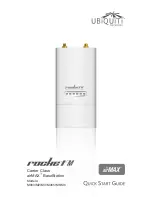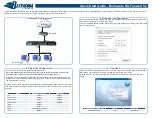
HWI Module
Application Program Interface
2-155
❏
operation
. The operation to be performed on the value monitored.
You can choose one of several STS operations.
Tconf Name: operation
Type: EnumString
Options:
"STS_add(*addr)", "STS_delta(*addr)", "STS_add(-
*addr)", "STS_delta(-*addr)", "STS_add(|*addr|)",
"STS_delta(|*addr|)"
Example:
bios.HWI_INT2.operation =
"STS_add(*addr)";
❏
Use Dispatcher
. A check box that controls whether the HWI
dispatcher is used. The HWI dispatcher cannot be used for the non-
maskable interrupt (NMI) service routine.
Tconf Name: useDispatcher
Type: Bool
Example:
bios.HWI_INT2.useDispatcher = false;
❏
Arg
. This argument is passed to the function as its only parameter.
You can use either a literal integer or a symbol defined by the
application. This property is available only when using the HWI
dispatcher.
Tconf Name: arg
Type: Arg
Example:
bios.HWI_INT2.arg = 3;
❏
Interrupt Mask
. Specifies which interrupts the dispatcher should
disable before calling the function. This property is available only
when using the HWI dispatcher.
■
The "self" option causes the dispatcher to disable only the
current interrupt and causes the appropriate interruptBitMask0,
interruptBitMask1, and mirmask/mir1mask values to be
generated for the interrupt being configured. When using "self",
set both interruptMask0 and interruptMask1 (and iMirMask if the
platform is OMAP 2320/2420) to "self".
■
The "all" option disables all interrupts.
■
The "none" option disables no interrupts.
■
The "bitmask" option causes the interruptBitMask[0/1] property
to be used to specify which interrupts to disable.
(For ’C55x, separate interruptMasks are provided for IER0 and
IER1.) (For OMAP 2320/2420, these properties control only the level
1 interrupts. The iMirMask property controls the level 2 interrupts.)
Tconf Name: interruptMask0
Type: EnumString
Tconf Name: interruptMask1
Type: EnumString
Options:
"self", "all", "none", "bitmask"
Example:
bios.HWI_INT2.interruptMask0 = "self";
















































